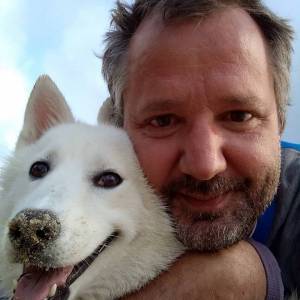Proximity : Honesty
When shooting people, especially from up close, the camera offers no protection. On the contrary, it exposes not only the person in front of it. I have found it impossible to hide behind it.
In our town, famous for its apparent lack of beauty, someone with a camera out in the streets is a rare sight. It attracts attention and raises suspicion. Why is he pointing the camera at that building? Is he planning to break into it? Why is he shooting that horse? Does he want to denounce maltreatment by its owner? Why is he zooming in on me?
From the beginning, I decided that the best strategy was to expose myself, be open about what I was doing. With my camera in hand, I approached people I wanted to photograph, explained why I was doing it, and asked for permission. Very often I get a “no” as an answer, even from people who have known me for some time. It’s hard to get a “no” as an answer.
But sometimes it’s even harder to hear a “yes”. In my experience, the camera establishes an intimate connection between photographer and subject. There is a reason why people who are photographed feel exposed: The camera searches the face and focuses on what makes that person special. Very often, it’s something that person tries to hide.
At the same time, the camera exposes me to myself. A person’s face echoes and reflects the way I see myself. I don’t like everything I see. Sometimes I feel raw after shooting a portrait (after shooting some of these pictures I felt exhausted, strangely irritated and emotionally drained).
Sometimes I don’t feel like exposing myself. And then I have to be honest enough to not expose other people.
(Today's blip: Isabella's eyelashes.)

Comments
Sign in or get an account to comment.


